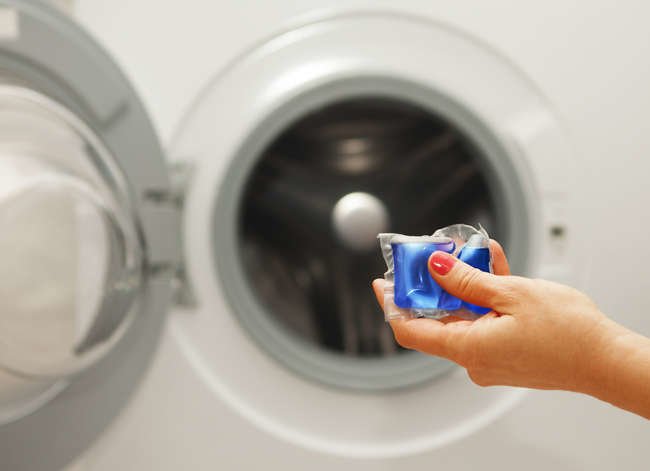

We may earn revenue from the products available on this page and participate in affiliate programs. Learn More ›
Home Advice You Can Trust
Tips, tricks & ideas for a better home and yard, delivered to your inbox daily.
By signing up you agree to our Terms of Service and Privacy Policy.
Cleaning Cons
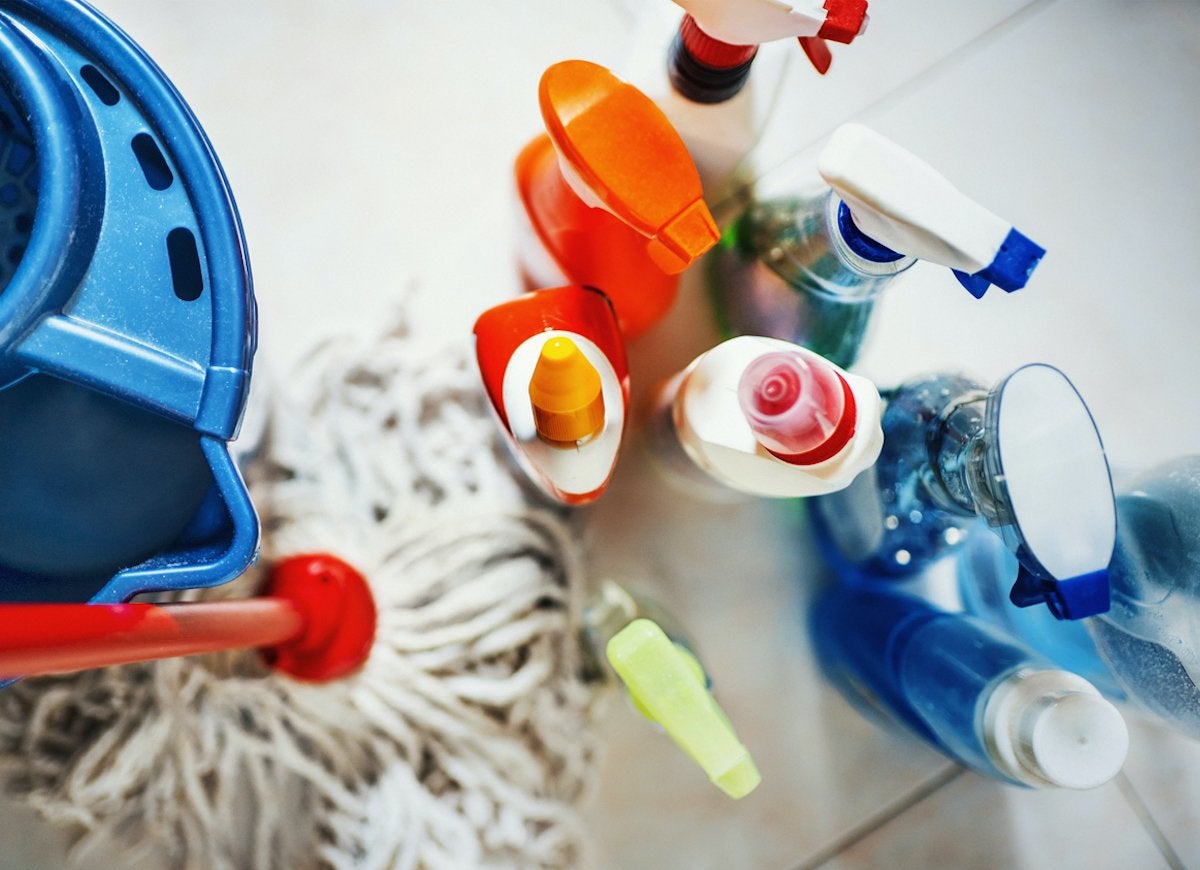
While most people don’t love to clean house, it’s a job that must be done. But in doing that job, we’re often relying on cleaning products that can harm our homes and our health. Always be sure to use cleaning products safely and sparingly, and be especially careful with these 15 cleaners that can do the most damage.
Air Fresheners
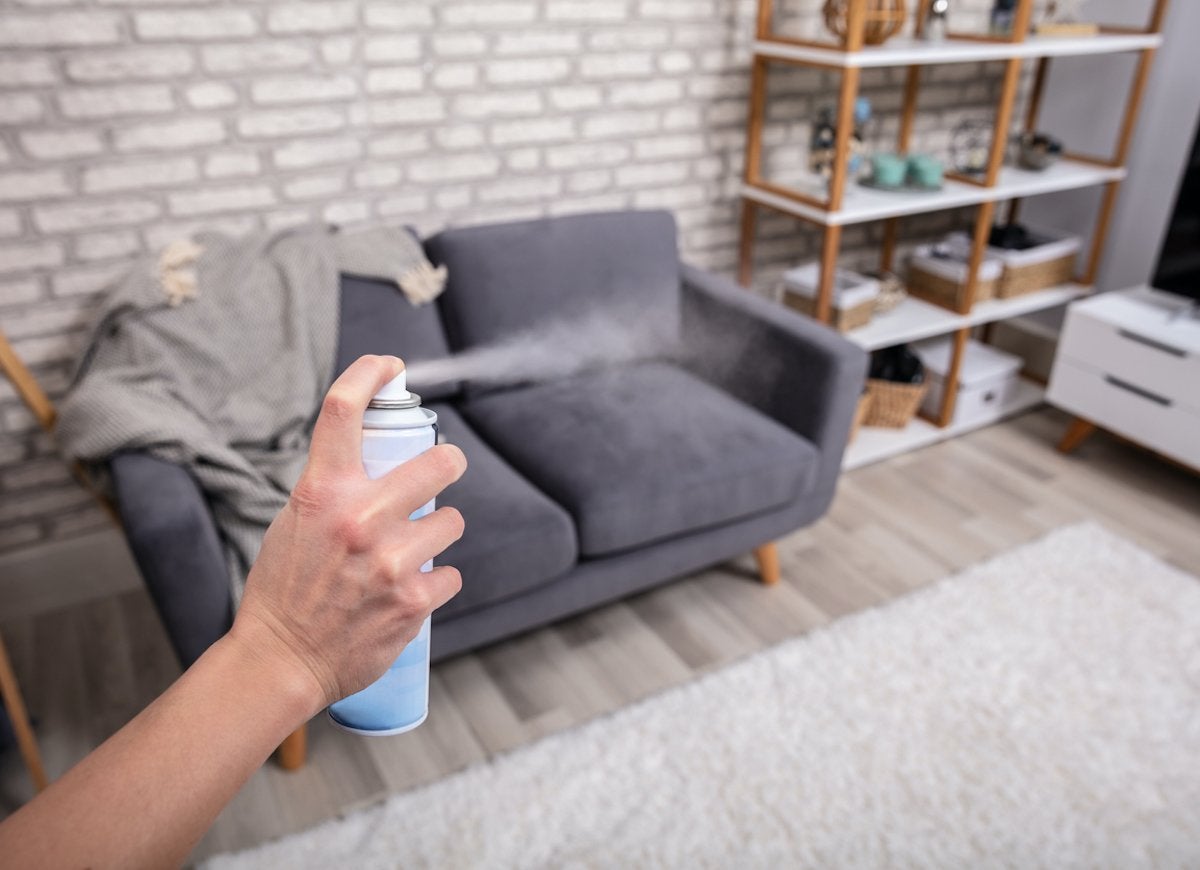
While many brands are switching to “fragrance free” and “unscented” options, you still need to be careful. Commercial air fresheners, scented and even so-called fragrance-free cleaners, often contain chemicals called phthalates. These synthetic esters are used to enhance plastics, and are found in a host of household products. Phthalates are considered “probable carcinogens” by the EPA and the Department of Health and Human Services, and have been linked to health concerns including liver, kidney, lung, and reproductive damage. While few studies have been done on essential oils, these naturally-occurring scented compounds are generally a better alternative for keeping your home fresh and healthy.
Vinegar
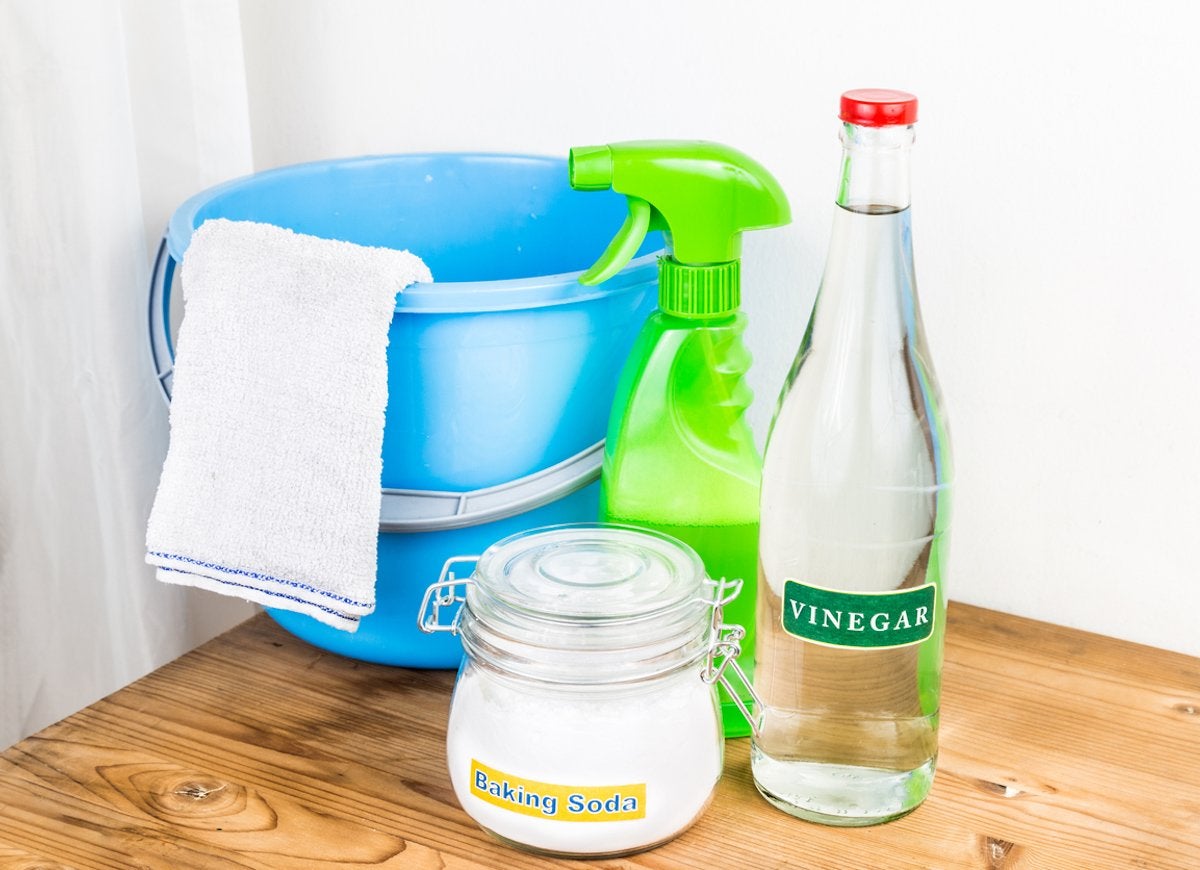
Vinegar has become a popular cleaning solution because it’s both inexpensive and natural. But all-natural doesn’t mean problem-free. Because of its high acidity, vinegar can damage many surfaces in your home. It will permanently dull the appearance of stone countertops like marble or limestone, and it will damage the finish on a hardwood floor. Before you use vinegar to clean your household surfaces, do your research to see if these areas of the house can stand up to the cleanser.
Related: 29 Handy Household Uses for Vinegar
Bleach and Ammonia
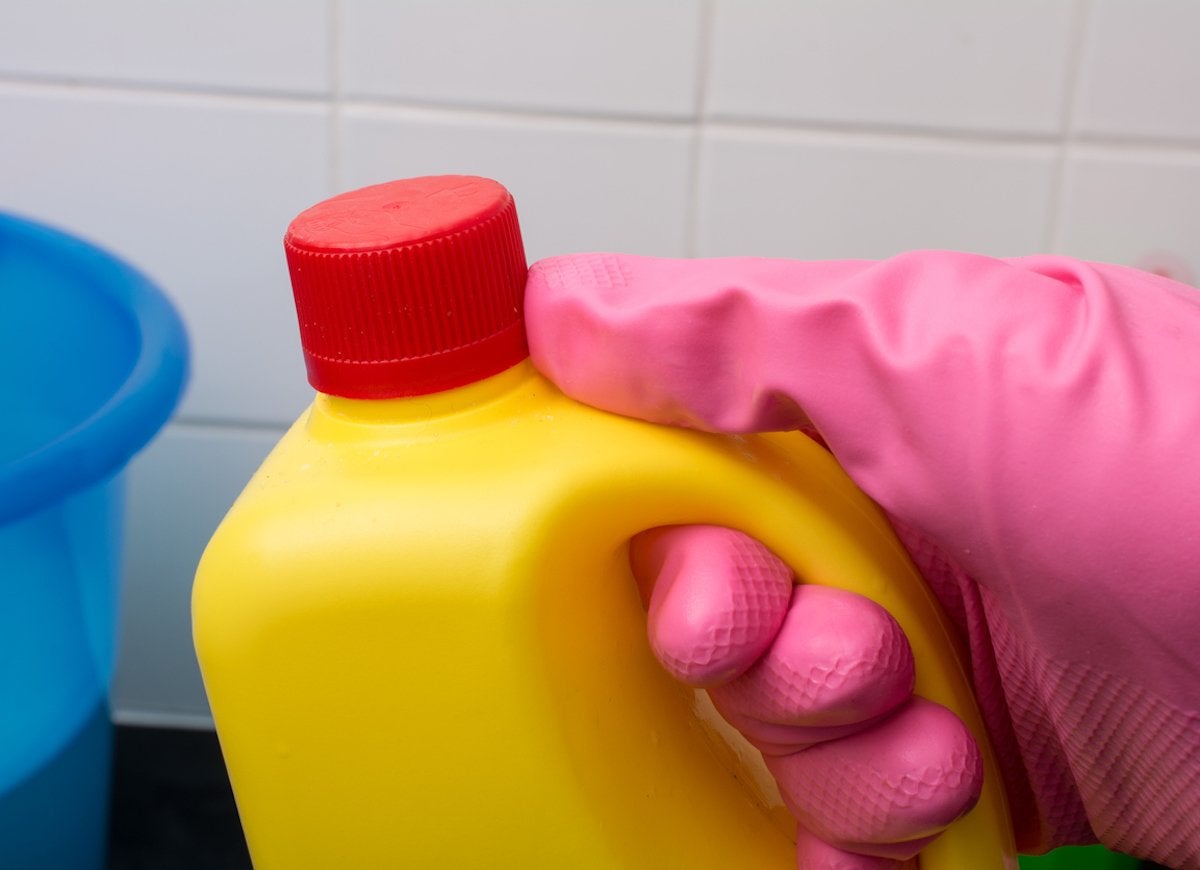
Bleach and ammonia have long been part of the household cleaning arsenal. Bleach is commonly used to remove stains from surfaces and to whiten laundry, and ammonia is often used to clean bathrooms and kitchens. On their own, both bleach and ammonia can be dangerous, emitting fumes that can irritate the eyes and lungs. But when they are mixed together, they create a chlorine gas that can be deadly. Bottom line: Never use bleach and ammonia together. No exceptions.
Silica-Based Powdered Cleansers
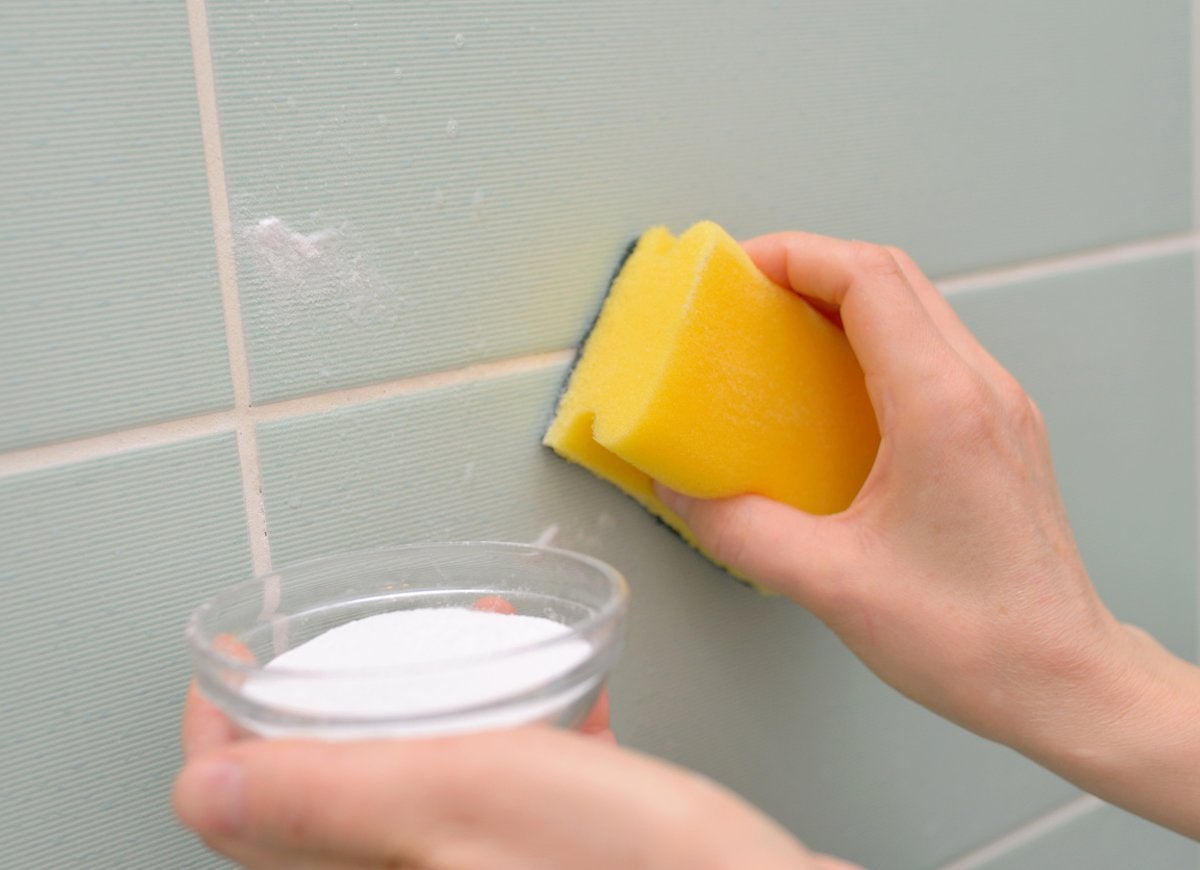
There are many powdered cleansers on the market, and they clean well because they contain abrasives that scrub dirt and grime from surfaces. Keep in mind that silica-based cleansers like Comet or Ajax will scratch porcelain, so you need to be careful where you use them. A nonabrasive powdered cleanser like Bon Ami, which is made of crushed feldspar, is gentle on all surfaces but still effective.
Related: 11 Ultra Powerful Products That Cut Your Cleaning Time in Half
Liquid Drain Cleaner
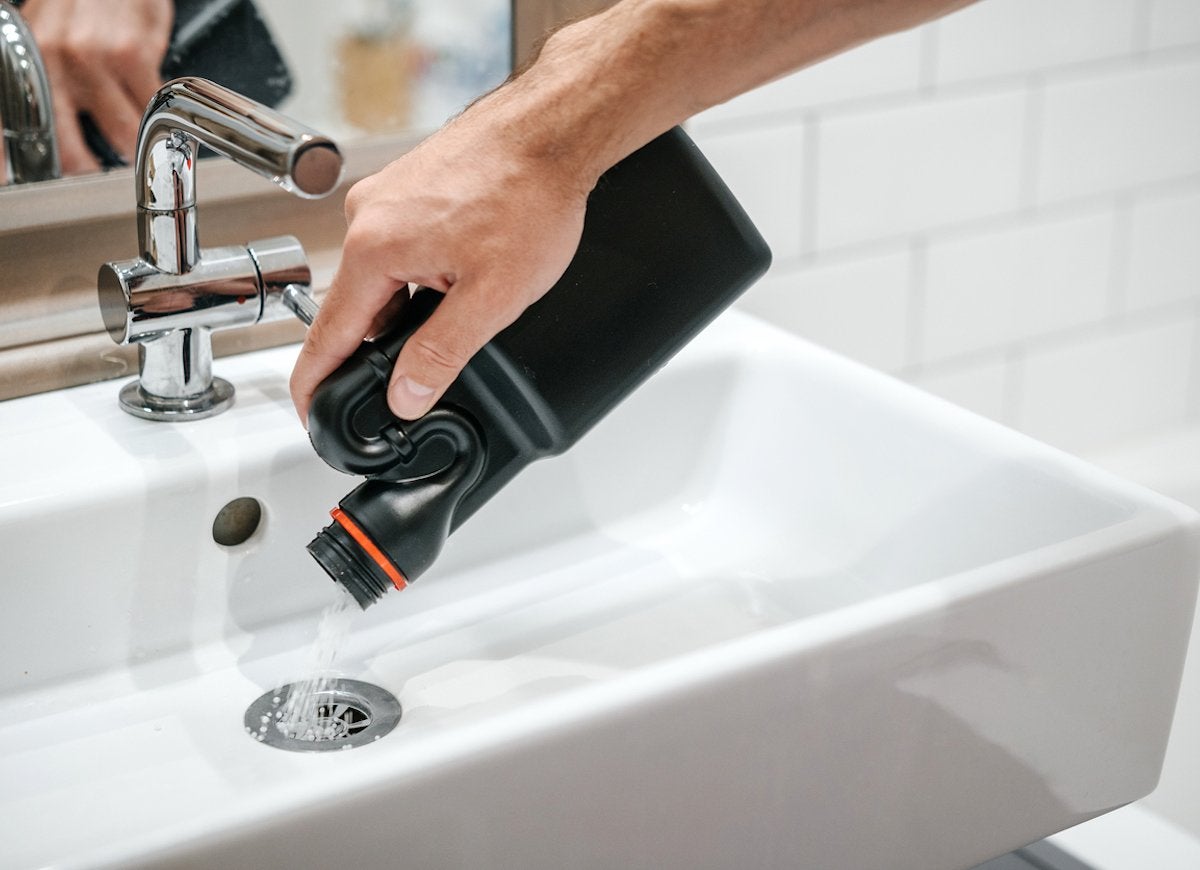
Liquid drain cleaners contain caustic chemicals that can dissolve tough clogs. They can dissolve other things as well, including wood, fabric, and paint. They can even eat away at the metal of older plumbing, creating holes in your pipes that will cause even bigger headaches than a clog. If it gets on your skin, liquid drain cleaner can burn you, and it can be fatal if swallowed. Suffice it to say, use liquid drain cleaners only when you absolutely have to, and with great caution, or try to make a safer homemade version.
Oven Cleaner
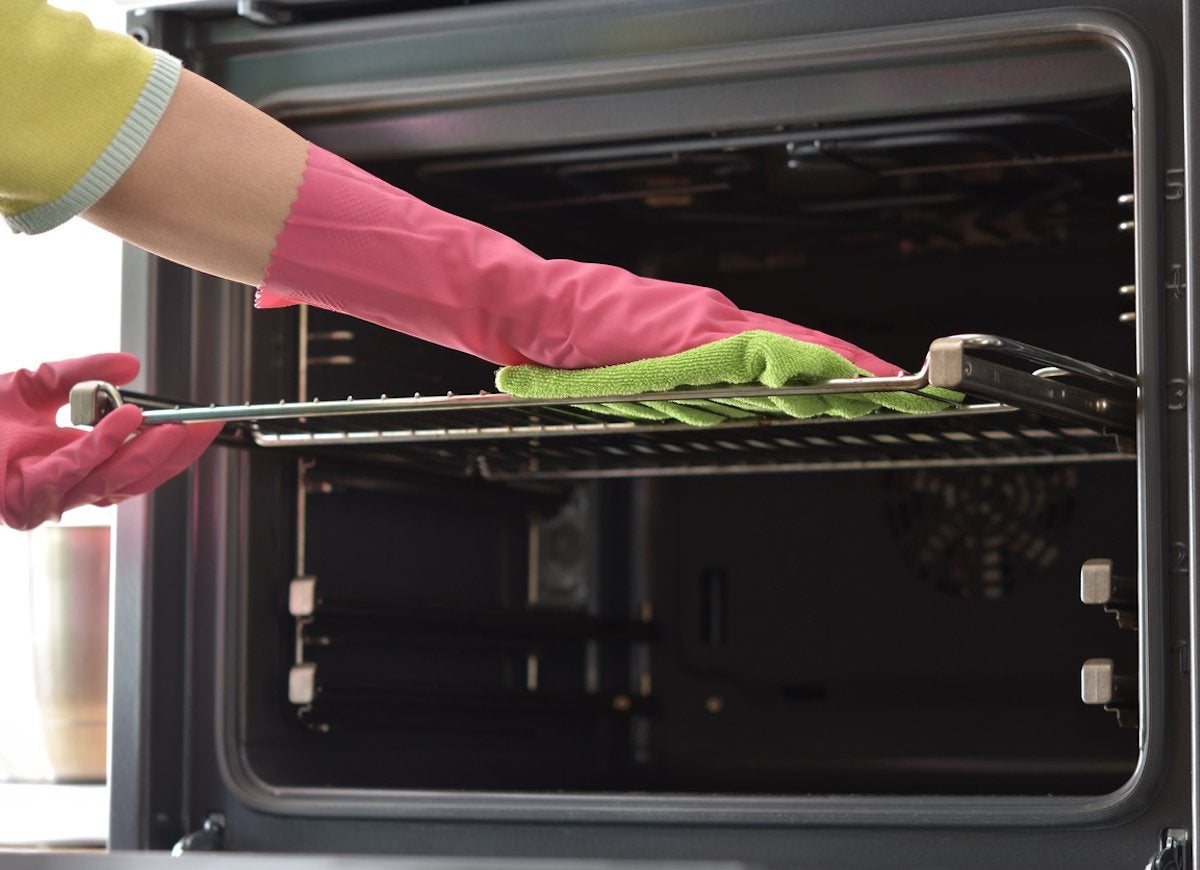
Many oven cleaners contain lye, which is toxic and can burn the skin and eyes. They also contain ethers, which can irritate mucous membranes in the nose and throat. While oven cleaners can be effective at getting the burnt gunk off the walls of your oven, they should be used with great caution. And as with all cleaners, they should be kept out of reach of children and pets when not in use.
Related: How to Clean an Electric Oven
Carpet and Spot Cleaners
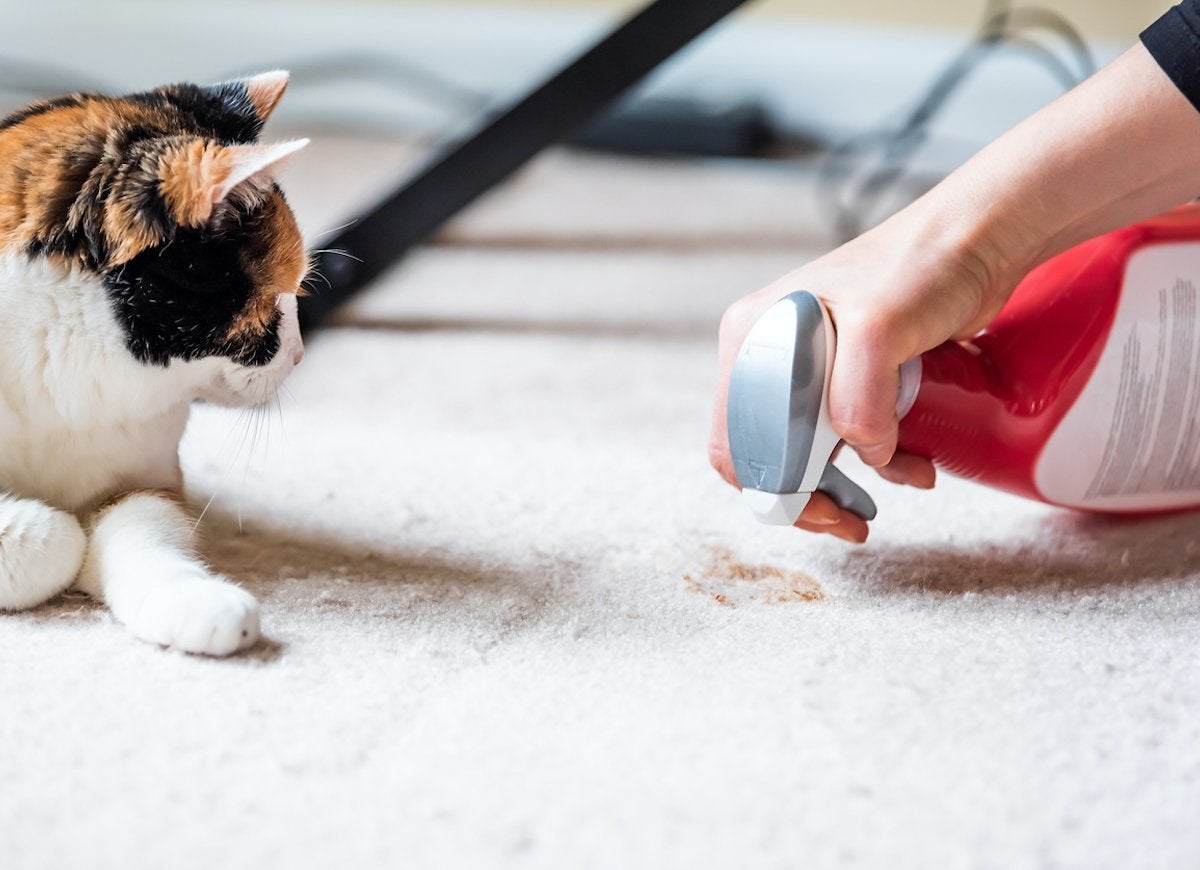
Ridding your carpet of spots and dirt is no easy job. That’s why harsh industrial chemicals are often used, in both professional and commercial carpet cleaners (like Resolve, which received an F rating from the Environmental Working Group). Some worrying ingredients include naphthalene, a carcinogen, often used in carpet and upholstery cleaners. Even the fumes can cause kidney and liver damage—and are a poison threat to children and pets.
Related: How To: Make Your Own Carpet Cleaner
Cleanser Pods
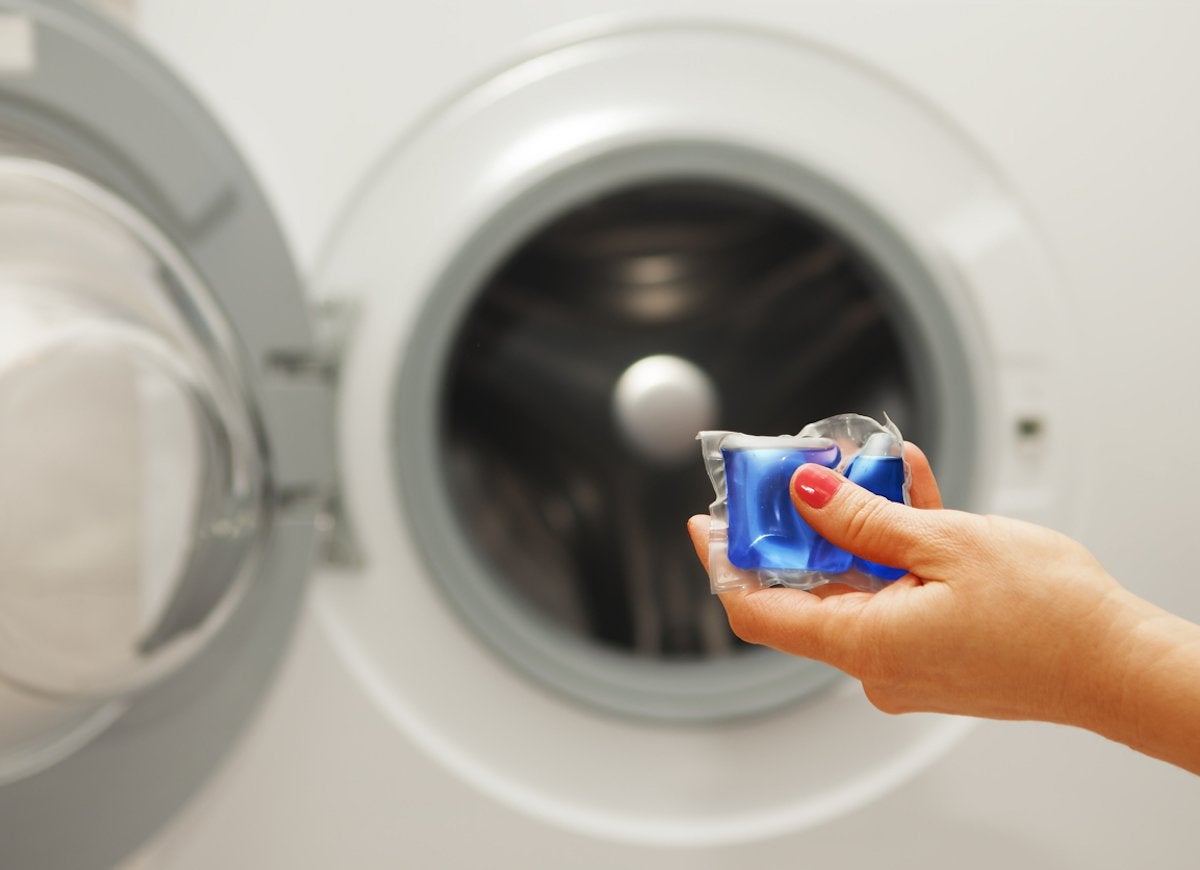
Whether they are made for the dishwasher or the washing machine, detergents that use pods as their delivery device are dangerous if you have young children in the home. Many of them are colorful like candy, and their attractive appearance can tempt children to swallow them.
Glass Cleaner
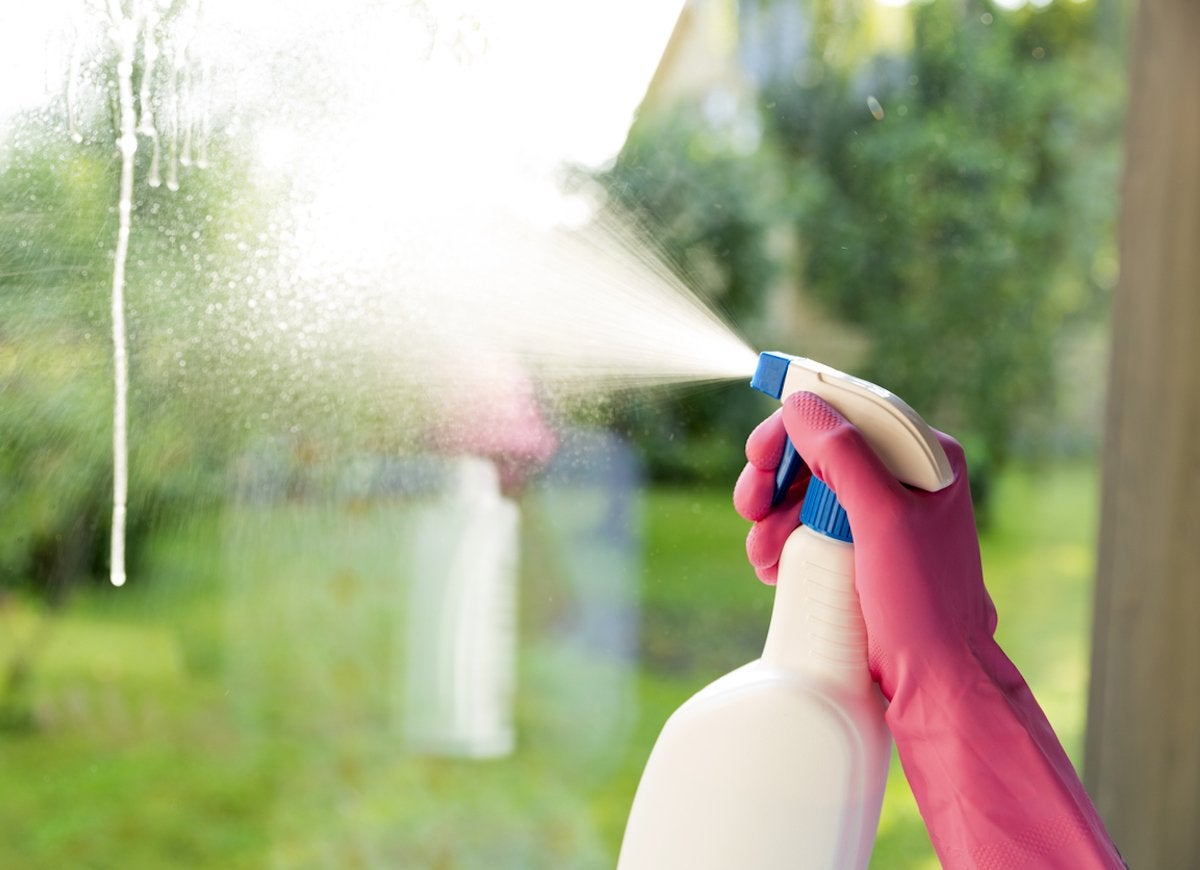
Glass cleaner does clean glass—and well—but it should never be used on other glassy surfaces, such as TV and computer screens, phones, or tablets. The ammonia in glass cleaner, after multiple applications, causes screens to yellow and fog, or to become brittle and prone to cracking. Similarly, glass cleaner should not be used to clean eyeglasses or sunglasses, because it can cause scratches and cracks to the lenses.
Magic Eraser
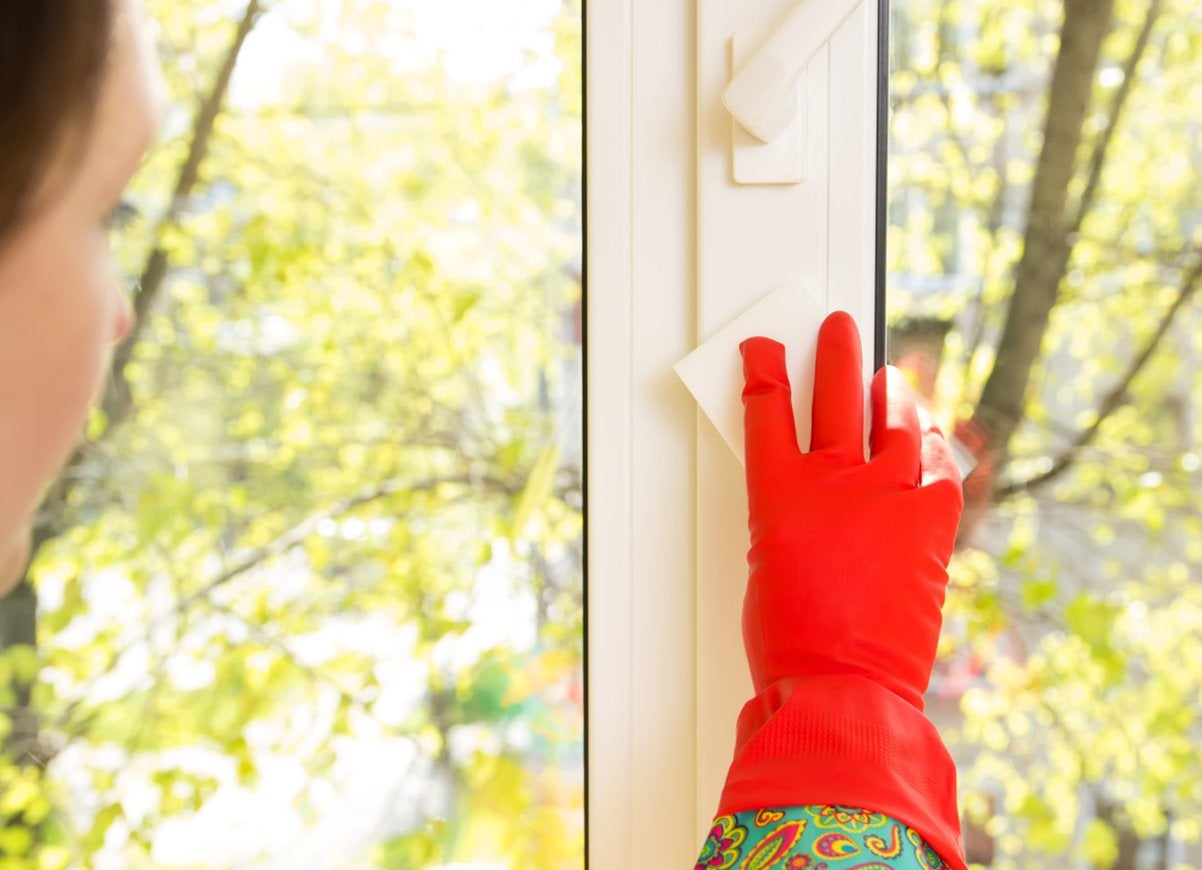
Magic Erasers may seem like housekeeping miracles, removing dirt, scuffs, and even permanent marker from walls or furniture. But be careful with these little powerhouses. Their extreme effectiveness is what makes them so destructive; they can even remove the paint or the finish from your wood. Use them sparingly to save yourself additional maintenance headaches.
Related: 30 Spring Cleaning Tasks You Can Tackle With Natural Ingredients
Furniture Polish
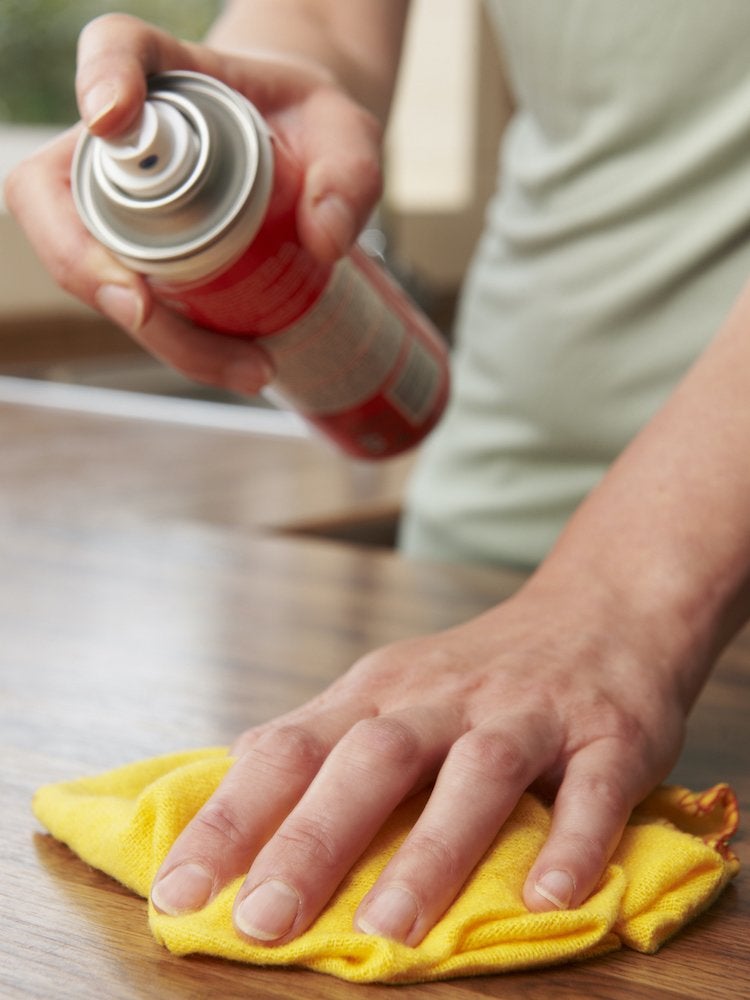
Furniture polish is unnecessary for most modern furniture. Decades ago, furniture did not have the protective top coats that today’s wood pieces do. If you use polish on a piece of furniture that has a protective top coat, it will only serve to create a cloudy, dull buildup that is difficult to remove. For newer furniture, skip the polish and stick to a slightly damp cloth.
Powdered Laundry Detergent
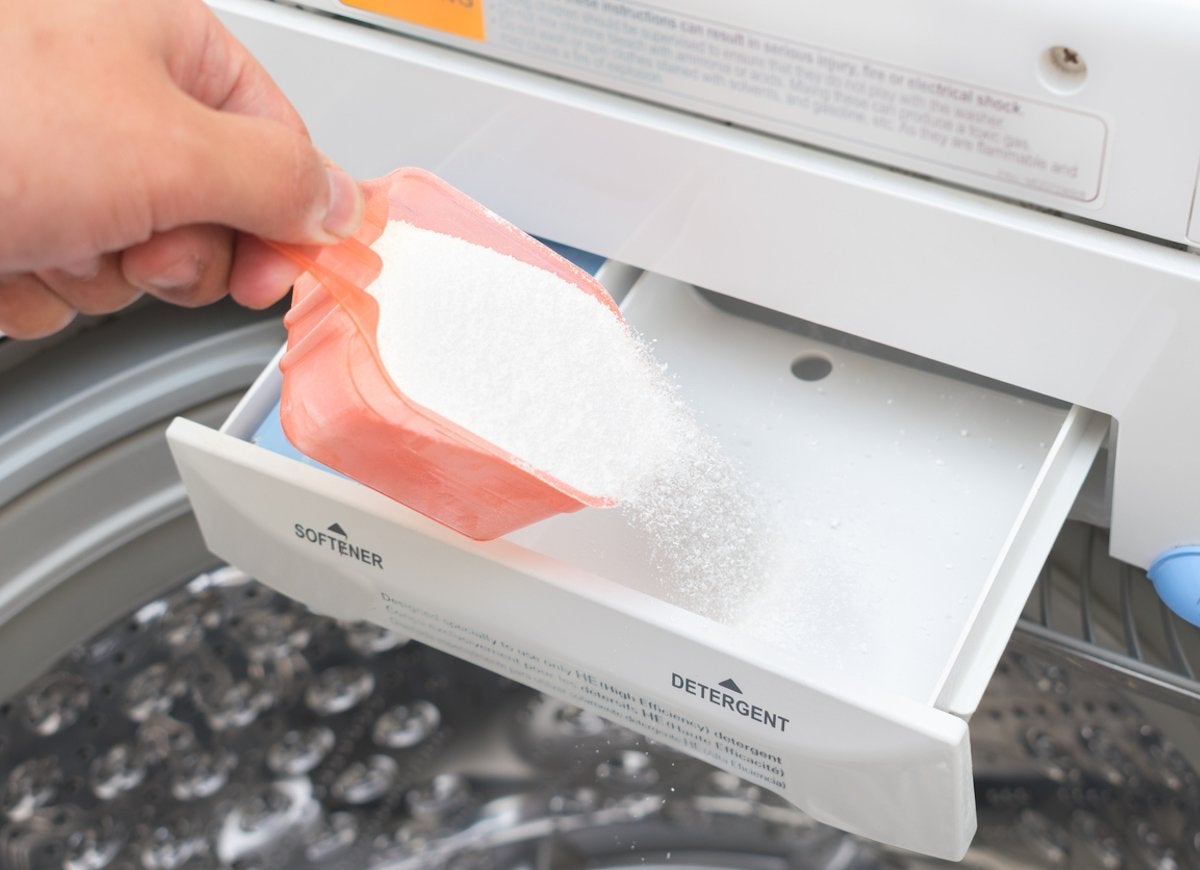
Powdered laundry detergents often contain additives and fillers that don’t fully dissolve during the course of laundering. These undissolved particles settle and build up over time, which can cause damage to septic systems and may eventually require a professional to come out and fix.
All-Purpose Sprays
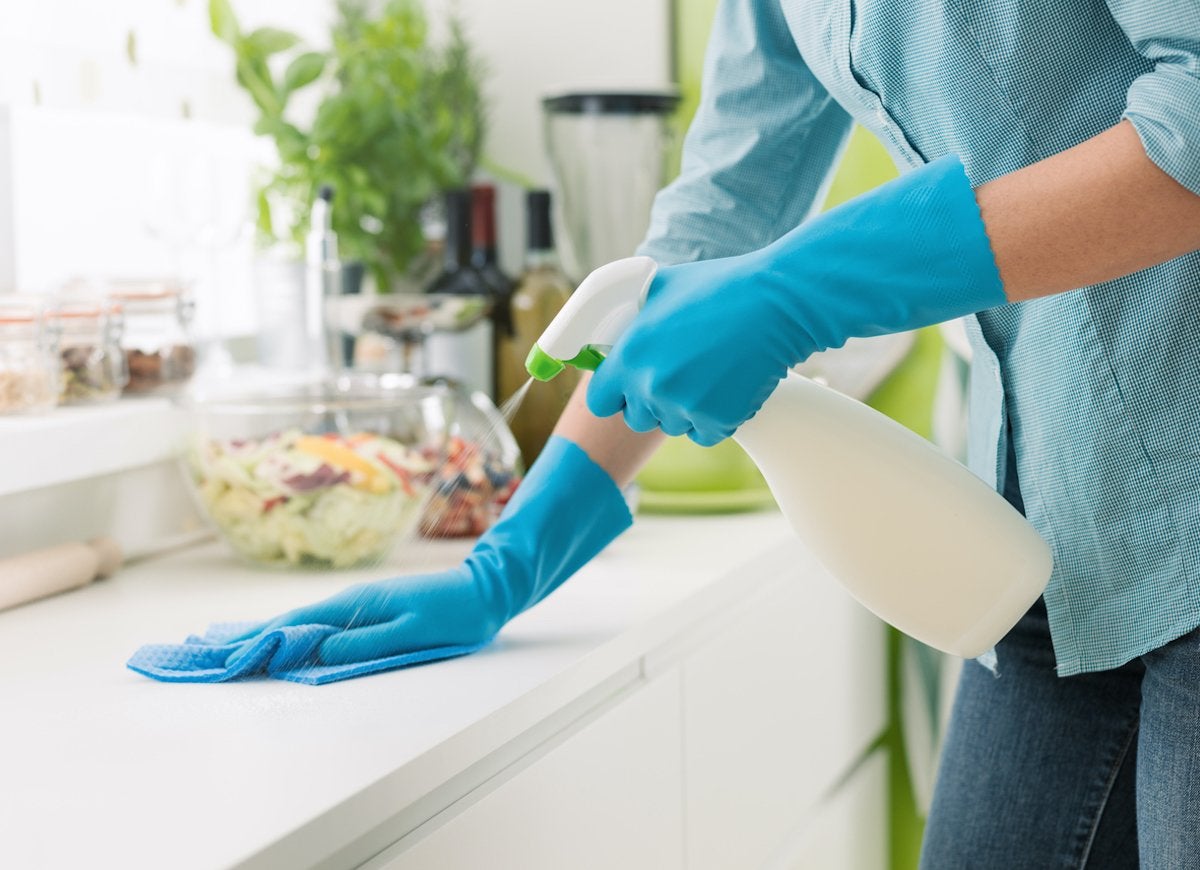
Many all-purpose cleaning sprays have a dark side. While these sprays may not directly damage home surfaces, their ingredients can be aggressive when it comes to our bodies. Solvents and surfactants can cause or aggravate asthma and allergies. Add to that concerns about artificial fragrances, phthalates, formaldehyde, ammonia, and hard-to-produce compounds that can cause anything from skin irritation to birth defects (in animal studies). Since there are plenty of alternative cleaners on the market, find a brand that is better for you, your family, and the planet.
Mold and Mildew Remover
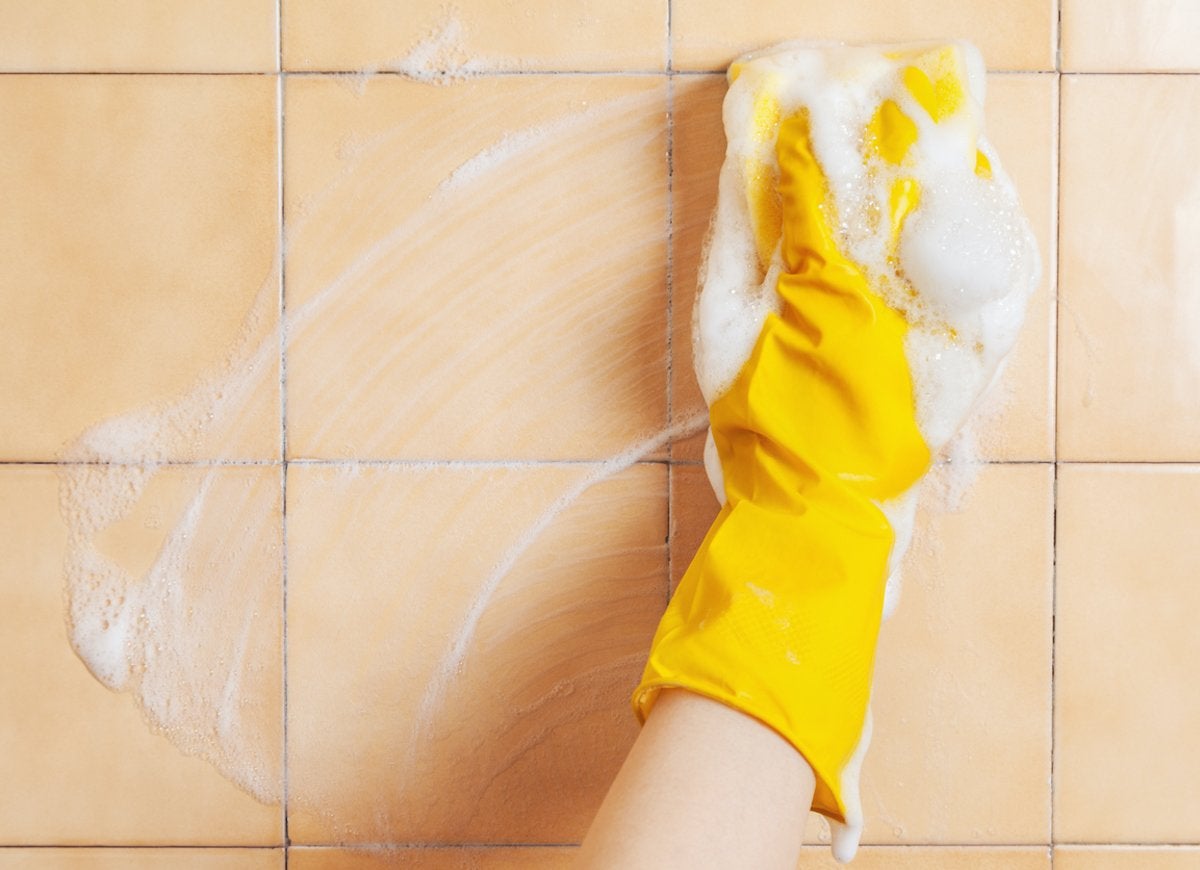
Most surface mold and mildew can be removed with a sponge and a mild cleaning solution (soap and water, or a citric acid-based formula). However, many spray-on products tout their ability to remove mold and mildew without any scrubbing. These sprays often rely on harsh chemicals, including bleach-like chlorine and alkyl ammonium chlorides. These common fungicides can cause breathing problems and respiratory damage, according to Cleveland Clinic. Stick with your sponge and a little elbow grease to keep your bathroom spotless and mold-free.
Antibacterial Soap and Sanitizers
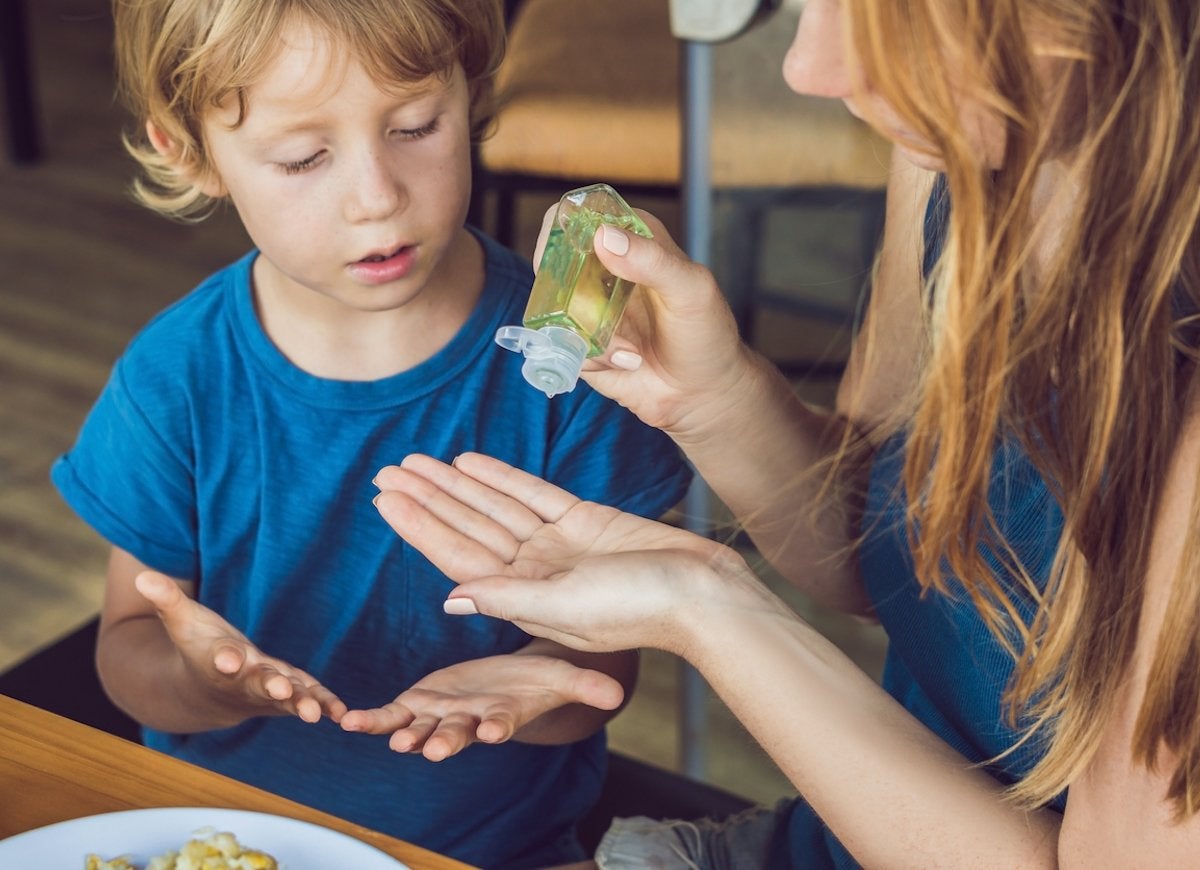
Antibacterial products promise to reduce our contact with disease-carrying bacteria. In reality this promise could have a harmful effect on our health. A key ingredient, triclosan, is being phased out by the FDA for the possibility that it contributes to making bacteria resistant to antibiotics, and is being studied for other health-related issues. There are still many antibacterial cleaners on the market, but the alcohol, chemicals, fragrances, and additives can cause irritations to those with sensitive skin. Use antibacterial sanitizers when in a pinch (like after riding public transportation), but for the rest of the time stick with the just-as-effective soap and water.
Related: 16 Things to Clean in Your Home After You’ve Been Sick

This Is the Year for a Kitchen Renovation
Whether you’re selling or staying, everyone can get something out of a kitchen update. Learn why we consider this renovation the Most Valuable Project of 2025 and how to stay on budget.